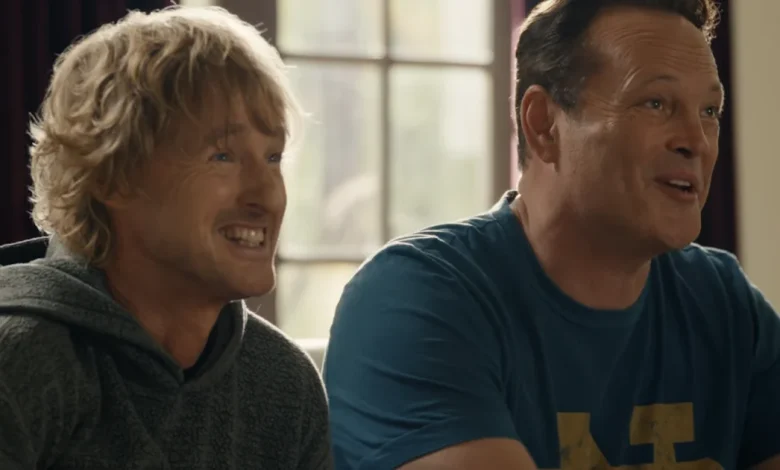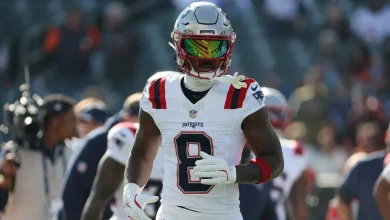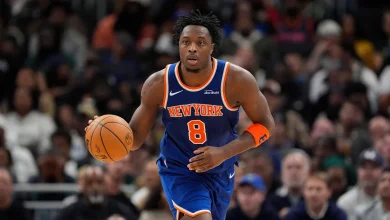Madison Avenue is making bromances cool. Can that spur improvements in men’s health?

I’m continually on the lookout for any positive indicators in the men’s health space, and I’m always anxious to share any sign of movement in the right direction.
Recently, two works centered on men caught my attention — a New York Times column and a new book from a bestselling author. Together, they present some interesting perspectives that are prompting conversations, and that’s a good thing.
A new source of inspiration
Inspiration for healthy lifestyles and the social relationships that motivate us typically are found in the confines of daily living. For me, my spouse, children and grandchildren are constant reminders of my purpose for living healthy. Troubling physician visits or test results also can prompt a man to reconsider his lifestyle. Then there are the guys who are looking for a romantic partner and have a practical need to look good. No matter the source, such personal influences typically dominate behavior change. Until now.
A recent New York Times column by Maureen Dowd, headlined “Bros Need Some Bros,” got me thinking. Yes, I’ve written about social contagion and cultural influences that inspire men to seek relationships that could enhance their health, but I have not seen much in the way of a new trends outside of the traditional debates on masculinity.
So, when Dowd wrote about the slew of celebrity bromances featured in television commercials and national advertising campaigns, I took note. You’ve seen them. Xfinity ads with Vince Vaughn and Owen Wilson, T-Mobile spots with the likes of Zach Braff, Donald Faison and occasionally John Travolta, and print ads featuring Al Pacino and Robert DeNiro pushing Moncler coats.
Suddenly, male friendships are the cool thing, a not so inconsequential point in a country where loneliness has been declared a public health crisis that particularly affects older men. They are extensions of bromance, like gym buddies that provide the accountability to maintain healthy habits.
Could it be that American men are getting a cultural kickstart to become more socially engaged from an unlikely source like Madison Avenue advertisers? Might this advertising provide men, especially older men like Pacino and DeNiro, a pathway to new cultural norms, because companies hawking cable television, mobile phone service or clothing find them appealing? Are men who need a hand-up getting a helping hand, one that may be a lifeline to the next generation of men?
The experts seem to think so.
Advertising and social change
According EBSCO, a leading provider of research databases, “advertising and social change are intricately connected, because advertisements not only promote products but also shape cultural values and societal norms.” The company suggests that advertising has the “potential to influence social behavior and foster cultural shifts.” Not only do advertising messages produce dialogue about products and services, but they also provoke thought about the underlying message.
Kevin Harrington, a United Kingdom-based marketing consultant, believes that “marketing shapes culture by influencing our values and ideals. Advertisements often promote certain lifestyles or personality traits as desirable, which can shift societal norms over time.”
So, will something emerge out of this recent surge of male-oriented, bromance messages?
At a minimum, they would seem to provide tacit approval for men to “up their game” when it comes to our social relationships and generally deem bromance acceptable among men of all ages.
But beyond waiting for the next commercial or magazine ad, what’s the message for older men? Is there an implicit message here that we owe it to ourselves and maybe the generation behind us to promote social engagement? With the wind of contemporary advertising at our back, is this a call to action to help right the ship of masculinity that seems to be adrift in the U.S.?
Another perspective on men
Earlier this month, Scott Galloway, a bestselling author, podcaster and professor of marketing at New York University’s Stern School of Business, published “Notes on Being A Man,” in which he argues that young men are experiencing a crisis marked by loneliness, addiction, rising male suicide rates and dwindling economic opportunities.
Suggesting that these issues not only affect men but also have broader implications for families and society, Galloway calls on older men to become better role models and advocates for policies that support this demographic. He’s aggressively making the rounds on the national media with a tough-love message that seems to be generating a positive response. Like Maureen Dowd’s column, his book is a conversation starter, a dialogue that needs to happen, and just perhaps, a signal that change is in the air.
The role of older men
A central theme of my advocacy for men’s health is influencing the next generation. Though my message is more narrowly focused on modeling healthy lifestyles, it’s good to see others like Galloway issue his own call to action for older men. More so, it’s also good to witness a movement, albeit to sell products, that is promoting positive cultural values by positioning male relationships as a normal part of our contemporary world.
Together, these factors present an opportunity for older men to play an important part of this evolving dynamic. The wisdom of our years is a great platform to help redirect the social ills we see among our younger men, the tragedies that are unfolding as they age into manhood and exhibit behaviors that can further enforce the positive messaging.
The importance of male role models is highlighted by researchers at the University of Worcester, who emphasize “everyday influencers” like teachers, coaches and positive role models already in the homes and lives of young males. Guys, that’s us.
Factors like advertising and books can trigger a shift in cultural norms including male stereotypes and masculine behavior. They have the potential to be more than commercials, ads or bestsellers and serve as a springboard for changing behavior. Men, it’s incumbent on us to recognize these opportunities and seize the moment.
Louis Bezich, senior vice president and chief administrative officer at Cooper University Health Care, is author of “Crack The Code: 10 Proven Secrets that Motivate Healthy Behavior and Inspire Fulfillment in Men Over 50.” Read more from Louis on his website.





